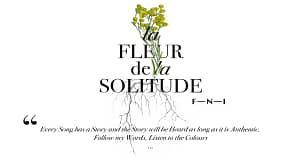Interview: Cristal Duhaime and Mira Burt-Wintonick of Love Me
5 min readWhat made you want to start a Podcast about relationships? Were shows like Serial and other podcasts, based on anecdotes, inspirational to you?
MBW: I’m always curious to hear about what’s going on in other people’s relationships. I’m a bit of a snoop. I wanted to create a show that would give me an excuse to talk to people about their private lives. And after WireTap ended, Cristal and I wanted somewhere to feature all the radio fictions we planned to write, and we figured starting our own show might be the best way to achieve that.
CD: Yeah, we were interested in having a venue in which we could explore both documentary and fiction. And relationship struggles seemed like a natural fit for a topic since it’s such a universal problem and there’s just so much to explore there. But we also wanted to make sure we were covering all kinds of interactions–not just romantic ones.
Tell us about Wiretap and its relationship to Love Me and the CBC?
MBW: Working on WireTap was an incredibly formative experience. I spent 10 years working on that show, which is pretty much my entire career. We always felt pretty lucky in that the CBC let us do our own thing for the most part so we were free to experiment and try new things. After spending so many years mixing WireTap, the aesthetic inhabits you a bit, so Love Me is definitely a continuation of that aesthetic in certain ways. But we also wanted to try to make it sound distinct so we enlisted a few musicians to help create Love Me’s sonic space with a new theme song and some scoring music.
CD: Listeners who are familiar with WireTap will definitely recognize a similar production style–for example the use of music and creative sound design to complement our stories, which can sometimes contribute to a surreal atmosphere… But it’s also a departure in that WireTap obviously very much centered on Jonathan Goldstein as the host and personality of the show and all the elements were filtered through him. Love Me instead focuses on the individual stories week to week. While we do have a host, the wonderful Lu Olkowski, she plays a somewhat non-traditional role in that we only hear from her off the top and she doesn’t interact with the pieces in the show.
How did you come across the stories for your first couple of episodes. Is there a way for people to submit their own to Love Me?
MBW: Our story ideas are a mix of us imagining things that would be fun to hear and then seeking those out in the real world or writing a fiction inspired by that idea, but then we also reached out to storytellers and asked them to pitch us stuff. We’re no longer accepting submissions for Season 1 of Love Me, but if we do a second season we’d love for people to get in touch if they have a story they want to share. They can do so through our website or at loveme@cbc.ca
CD: Yeah, when we did the call-out for season 1, we weren’t sure exactly what we were looking for… But now we have more of a sense of things and we hope listeners will as well and come to us!
What was the hardest part about creating the show, in terms of production? What was the easiest?
MBW: One of the hardest parts was selecting the stories we wanted to feature. We got flooded with story submissions and it was tricky to decide which ones to focus on and which to devote our energy to. Once we figured that out it was a little easier to wrap our heads around everything, but then of course the challenge of structuring each piece begins, which is no easy feat. Each piece went through many many drafts during the editing process before we felt satisfied with the story arc. The easiest part was probably mixing because once you get into the right flow things start to come together nicely and you have all the elements in front of you so you’re no longer digging through tape and re-arranging things. You’re just trying out different songs and sounds and seeing what resonates best.
CD: There was also a lot of heavy-lifting in figuring out the basic elements of the show, for instance the theme song and scoring music, the host’s role, the show’s logo, etc. Those elements are instrumental in creating the identity of a show and once they’re put in place there’s no going back. So that seemed to require a lot more thought and debate than with just producing individual stories. If we were to do a 2nd season of the show, I think we would have an easier time of it as that foundation will already have been worked out. We were also perhaps a little ambitious with some of our pieces which made production rather intensive–one of the toughest things we decided to do was a short drama with 12 characters. The casting alone was incredibly time-consuming, let alone the editing and mixing!
What can listeners expect in future episodes? Anything you can reveal?
MBW: We have a great story by the ABC’s Sophie Townsend that we’re really excited about. She’s one of our favourites radio producers. And a few more personal stories that made us cry all through the editing and mixing process. But it’s not all tears! There’s some fun stuff, too!
CD: The short drama with 12 characters I mentioned before is coming up in episode 5, “Family Portrait”. It features a well-meaning family man who tries to get one decent group photo. And of course, things go horribly awry. I’m also excited about the story of a woman in her 60s who seeks out the man who confessed his feelings for her back when they were in their teens. She finds out he joined the priesthood shortly after she turned him down all those years ago…
Where can people learn more about Love Me and other works you’re involved with?
MBW: People can subscribe to our podcast on iTunes or visit cbc.ca/loveme for extra content, like photos associated with each episode or a great animation about untranslatable words of love. We’re also starting production on a new fiction series for Howl.fm that will be released sometime in the fall.

